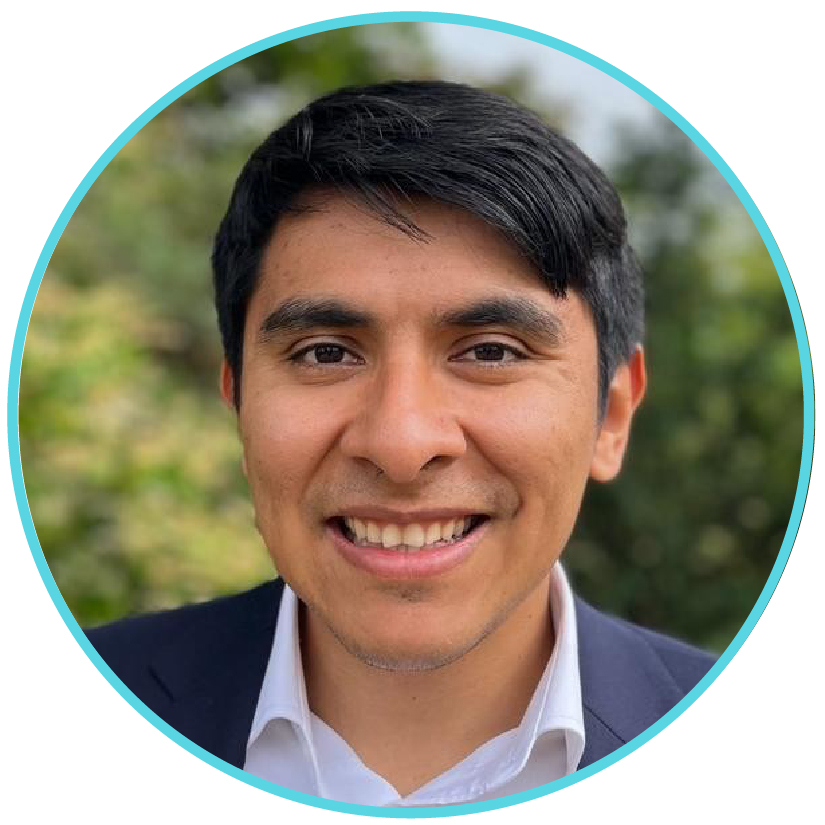The Future of the Tropics is the Future of the World
Featuring the Smithsonian Tropical Research Institute
April 27, 2024 | 5:00pm - 7:00pm | Palais Ferstel

H.S.H. Hereditary Prince Alois von und zu Liechtenstein
Hereditary Prince Alois, born in 1968, is the eldest son of Prince Hans-Adam II and Princess Marie. He completed his Studies of Law at Salzburg University with a master's degree in 1993. He is destined to succeed to the throne. Since 15 August 2004, he has performed the duties of Head of State of the Principality of Liechtenstein as his father's deputy.
Opening Remarks

Joshua J. Tewksbury
Ira Rubinoff Director of the Smithsonian Tropical Research Institute (STRI), Panama City
Josh fosters understanding of tropical nature's significance for human welfare. He manages 400+ employees and a $35M budget, overseeing research facilities in Panama and field sites worldwide. With 30 resident scientists and 1,400 annual visitors, he drives research and public awareness of tropical ecosystems. Josh's extensive scientific background in biodiversity, sustainability, and conservation, along with his adept management of international projects, enhances STRI's collaboration with the Smithsonian and global scientific community. His communication skills bridge diverse audiences, ensuring continued growth and impact in tropical research and education.
The Smithsonian’s role in Life on a Sustainable Planet

Ellen Stofan
Smithsonian Under Secretary for Science and Research
Ellen oversees the Smithsonian's scientific research centers and science museums such as the National Museum of Natural History and STRI. Championing the "Our Shared Future: Life on a Sustainable Planet" initiative, she drives collective research in biodiversity, climate change, and environmental justice. As the first woman to direct the National Air and Space Museum, she spearheaded its flagship renovation and the memorable celebration of the 50th anniversary of the moon landing through full-motion projection mapping artwork on the Washington Monument. With over 25 years in space-related roles, including as NASA's chief scientist, Stofan's expertise spans planetary geology and exploration. A prolific author and esteemed trustee, she's recognized for her contributions to science and society.
Tropical Forests and Global Climate

En Lee
Managing Director, Head of Sustainable and Impact Investments in Asia at LGT
At LGT, En manages the regional impact investment portfolio in Southeast Asia and China. He is a Senior Advisor of Lightrock, a global private equity impact investment firm initiated by LGT, and an appointed member of the Board of Directors of LGT Bank (Singapore). A respected industry leader, En serves on the Executive Committee of the Singapore Sustainable Finance Association and the Boards of UN Global Compact Singapore, Asian Venture Philanthropy Network, and the Singapore Venture & Private Capital Association where he co-chairs the ESG Committee. He was recognised as a Finance Leaders Fellow of the Aspen Institute and named an inaugural Sustainable Finance Fellow by The Institute of Banking & Finance Singapore.

Stuart J. Davies
Director of the Forest Global Earth Observatory (ForestGEO) at the Smithsonian Tropical Research Institute and Frank H. Levinson Chair in Global Forest Science
Stuart delves into ecological and evolutionary influences on rainforest communities worldwide and uncovers how environmental factors shape species distributions and ecological processes. Stuart's leadership drives ForestGEO's scientific direction, coordinating sites, securing funds, and expanding scientific impact globally. Previously, he managed the Asia Program for the Center for Tropical Forest Science and served in academic roles at Harvard University and the University of Malaysia Sarawak. Stuart earned his PhD from Harvard University in 1996, contributing significantly to the understanding of forest diversity and dynamics.
Vibrant Tropical Oceans

Oris Sanjur
Deputy Director of the Smithsonian Tropical Research Institute
Oris Sanjur, Deputy Director of the Smithsonian Tropical Research Institute, brings three decades of dedication to the institution. Starting as a research assistant in 1989, she earned a B.S. in Biology from the University of Panama and later a PhD in Cell and Developmental Biology from Rutgers University. Joining as a postdoctoral fellow in 1998, she focused on comparing genetics of wild and domesticated crops. Sanjur has held various roles, including Interim Director of STRI in 2020 and Acting Deputy Diversity Officer at the Smithsonian Institution in Washington. With 30+ peer-reviewed articles, numerous presentations, and mentorship of 100+ students, she's committed to scientific advancement. Sanjur's current projects include co-leading a $3 million NSF RAMP grant and memberships in APANAC and IWF.

Matthieu Leray
Staff scientist at the Smithsonian Tropical Research Institute
Matt specializes in marine ecology and biodiversity. His research focuses on understanding the intricate connections within marine ecosystems, particularly in coral reef environments. Through innovative methods such as DNA sequencing and ecological modeling, he unravels the complexities of species interactions and ecosystem dynamics. Leray's work contributes to broader efforts aimed at conserving and preserving marine biodiversity in the face of environmental challenges. With a commitment to scientific inquiry and conservation, he plays a vital role in advancing our understanding of tropical marine ecosystems and their conservation.
Tropical Resilience

Alfredo Giron
Head of the World Economic Forum’s Ocean Action Agenda and Friends of Ocean Action
Alfredo drives strategy for the Ocean Action Agenda and Friends of Ocean Action, fostering sustainable transformations in business and policy. With expertise in public-private partnerships, he addresses marine conservation, fisheries management, and the blue economy's acceleration. Alfredo's efforts strengthen scientific integration into marine policy across 15+ countries. Previously, as an André Hoffmann fellow at Stanford Center for Ocean Solutions and the World Economic Forum Centre for the Fourth Industrial Revolution (C4IR), he pioneered scientific and technological solutions against illegal fishing. A Roger Revelle awardee recognized by the US National Academy of Sciences, Alfredo holds a PhD and MSc from Scripps Institution of Oceanography and a Bachelor's from Universidad Autonoma de Baja California.

Ana Spalding
Director of the Adrienne Arsht Community-Based Resilience Solutions Initiative at the Smithsonian Tropical Research Institute
With interdisciplinary expertise spanning economics, marine affairs, and environmental studies, Ana brings over two decades of experience in international development and conservation. Ana’s research delves into drivers of global change and their impacts on vulnerable communities, advocating for community-based solutions. Through interdisciplinary approaches, she advances resilience science, focusing on marine resource-dependent communities in California and Oregon. Committed to collaboration, she works towards innovative and equitable solutions to social-environmental challenges in ocean governance.